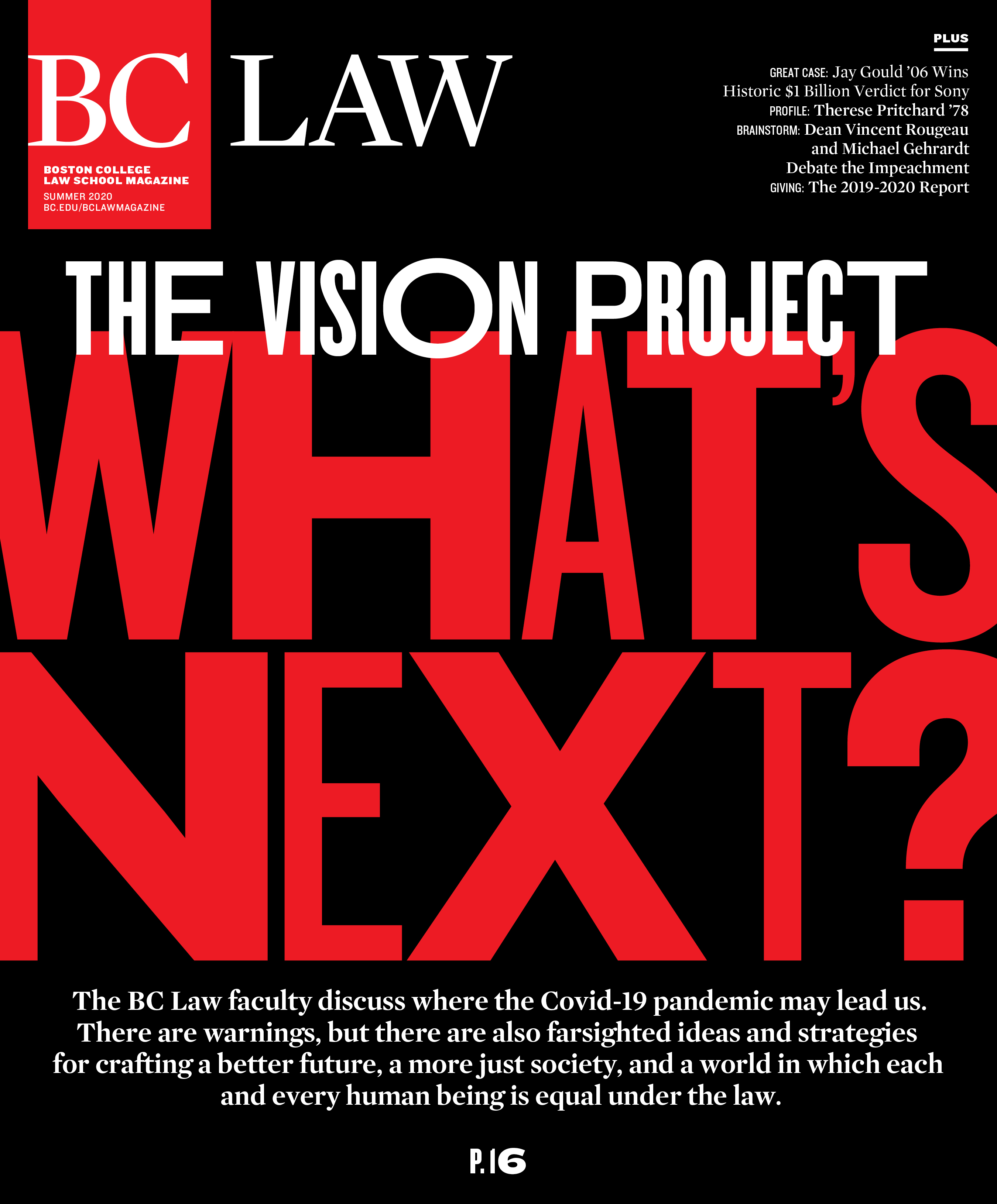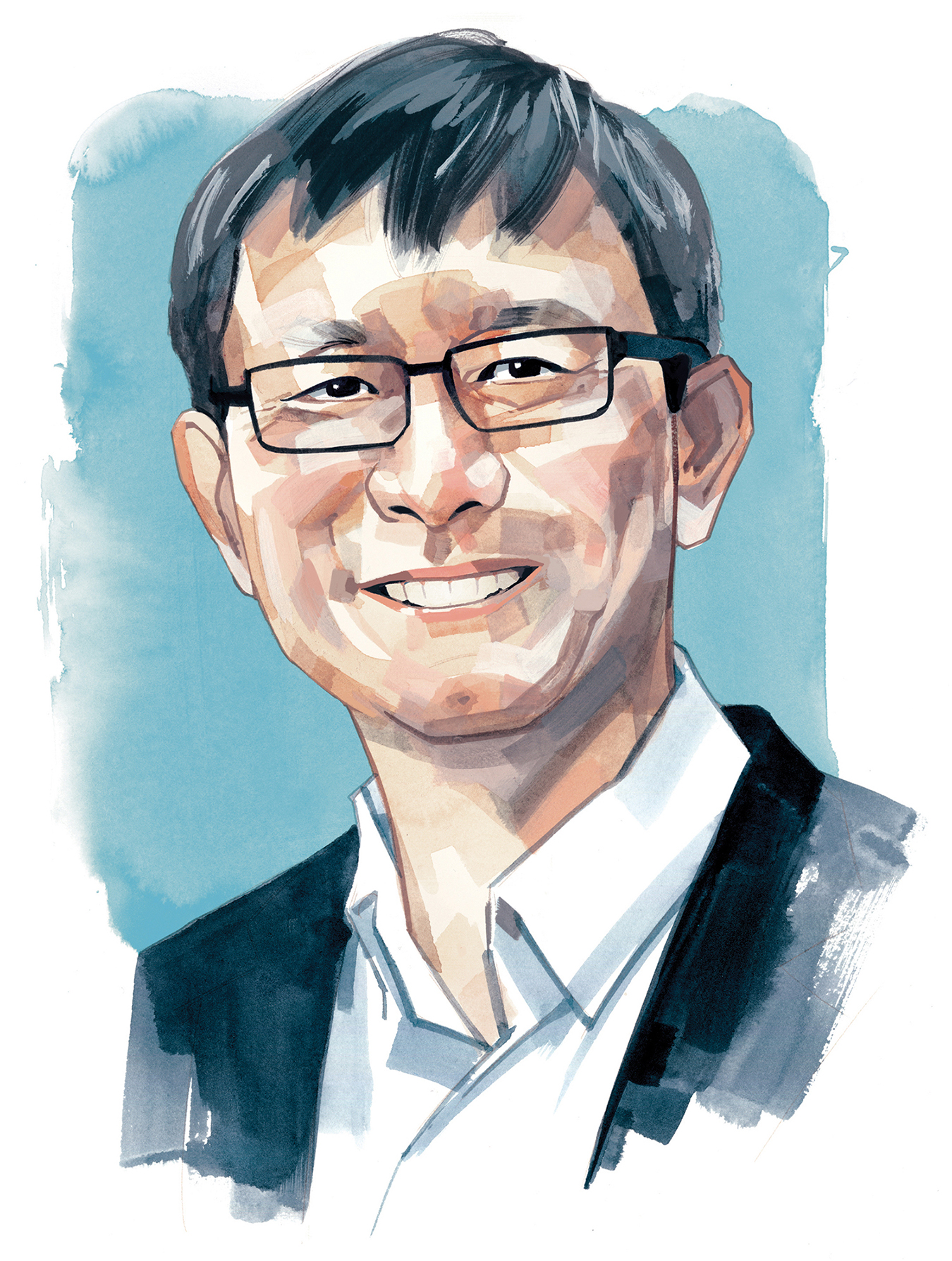Pocket Résumé
Degrees: BS, MA, Stanford University; JD, Harvard. Title Professor and Dean’s Distinguished Scholar at BC Law. Newest Credential: Editor-in-Chief, Journal of the Copyright Society. Select Writings: Articles in Georgetown Law Journal, Southern California Law Journal, North Carolina Law Review, Boston University Law Review, Minnesota Law Review, Chicago-Kent Journal of Intellectual Property, and Virginia Sports and Entertainment Law. Books include Copyright Law: Essential Cases and Materials, editions 1–3 (co-authored with Joseph P. Liu). Activism: Organized the first, fifth, and tenth Conference of Asian Pacific American Law Faculty, all held at BC Law.
The Idea: Extending copyright law to cover the internet requires that courts look deeper into underlying policies in order to decide which rationale from the law of tort applies: strict liability or fault-based liability.
The Impact: The internet has increased the speed and facility of disseminating all kinds of copyrighted material, including literature, music, and movies—often without permission.
As Professor Alfred C. Yen explains, in the pre-internet world, copyright owners whose rights had been infringed upon would most likely have sued the individuals directly responsible for distributing copyrighted works without authorization. However, in the internet era, it may be difficult to locate the precise person responsible or that person might be located outside the United States. In addition, one single person might not have the financial resources to fully compensate a copyright holder for the damages of copyright infringement, making this traditional recourse ultimately unsatisfactory.
In response, copyright holders have begun suing internet service providers for infringement committed by their users, drawing on established law that at times holds one party responsible for copyright infringement committed by another. The result has been a series of narrowly focused decisions that do not answer the fundamental strict liability or fault-based liability questions at stake.
Yen’s work has had considerable influence over the positions taken by litigants in third-party copyright litigation. However, because his writings call for a more subtle and deeper analysis of the underlying law, rather than arguing for any particular approach, they have been cited by both sides.
Courts might choose strict liability, he explains, because they believe that internet service providers should insure and guarantee the behavior of their users. Followers of this theory argue that it does not matter how careful or responsible the service provider is in trying to prevent its users from committing copyright infringement because service providers should insure and guarantee that their systems are never used for infringement. Thus, if infringement does occur, the service provider is liable even if there was nothing reasonable that could have been done to prevent it. “Not surprisingly,” says Yen, “copyright holders often favor this line of thinking.”
Alternatively, courts might hold internet service providers liable only when they have behaved unreasonably in failing to stop infringement. This would happen if the provider intentionally encouraged infringement or if the provider took insufficient precautions against infringement. “Service providers prefer this line of thinking because it implies that reasonable behavior eliminates responsibility for the behavior of their users,” says Yen.
Although Yen’s work has been cited in such cases as the 2002 US Fourth Circuit Court of Appeals CoStar Group Inc. v. Loopnet, where the use of proprietary real estate material was at stake, this conflict may best be illustrated by the leading Supreme Court case MGM Studios Inc. v. Grokster Ltd. In this 2005 case, Yen’s writings were cited by the plaintiff and the defendant. The plaintiff, MGM, sought damages on the basis of strict liability. In other words, on the grounds that Grokster, a peer-to-peer file-sharing network, enabled improper use of MGM’s copyrighted material. As a file-sharing network, it was set up to share material, even copyrighted material. The defendant Grokster, on the other hand, used Yen’s writings to support a fault-based approach, which argued that under limited liability it was not responsible for malfeasance by individual users. The network existed for users to share files, but they weren’t supposed to share copyrighted files.
Interestingly, the Court decided the case unanimously in the plaintiff’s favor, but did so under the general theory favored by the defendants. In its decision, the Court appeared to reject the plaintiff’s argument that the defendant acted as guarantors and insurers of its users. Instead, it apparently accepted the defendant’s argument of limited liability: that Grokster should only be responsible under certain specific conditions. Unfortunately for Grokster, the Court found that the case met those conditions. The implication, explains Yen, was that “the defendant lost because it deliberately wanted its users to infringe.”
However, this decision did not settle the issue. Because the Court did not clearly reject the viability of the plaintiffs’ theory of the case, it left ambiguities that persist to this day. “Current litigation about third-party copyright liability shows that courts still have not clearly decided which rationale of liability takes precedence, or how the different rationales might be blended,” says Yen.
It is therefore possible that the issues Professor Yen has framed will return to the Supreme Court for further clarification.
The courts, he says, “have to be more nuanced and more thoughtful about how they construe the doctrines defining where liability exists.”



